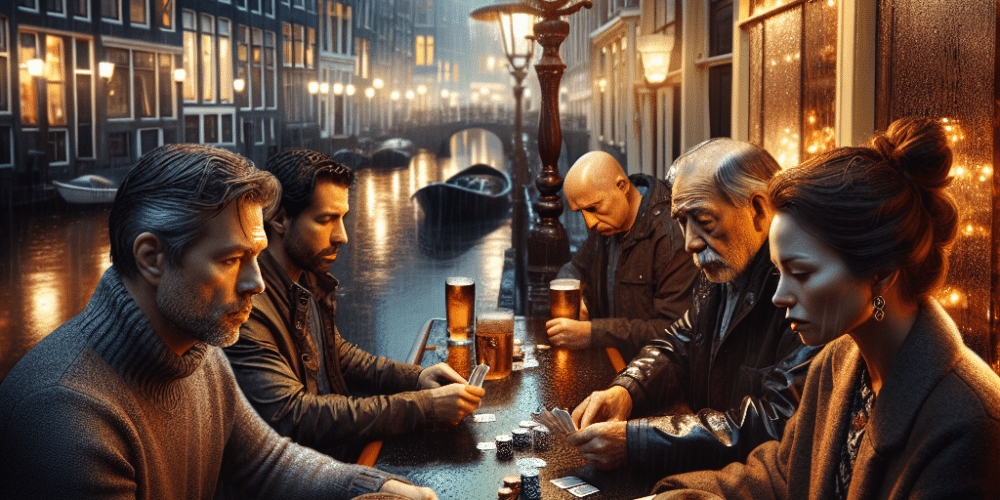Exploring how a cozy poker session in Amsterdam taught me more than just strategy.
There’s something incredibly peaceful about Amsterdam in the rain, especially when you’re tucked away inside one of those quaint, dimly-lit cafes that double as a poker haven. Last week, amidst the drizzle and the clinking of coffee cups, I found myself embroiled in a low-stakes Texas Hold’em game that felt more like a chess match than a card game.
I slid into a game at one of my favorite spots in the city, Café Zeezicht, which always attracts an eclectic mix of locals and tourists. The vibe here is always laid-back, the coffee strong, and the poker competitive but friendly. As I bought into the game, I couldn’t help but feel a buzz of excitement, mingled with the comforting aroma of roasted beans and wet cobblestones seeping through the open door.
The game started off strong. I was in a good position and managed to build a decent stack early on. My opponents were a mix of seasoned regulars and eager tourists, each with their style and tells. There’s Martijn, the local who never misses a Sunday game, and Elise, a tourist from Canada, whose adventurous bet sizing always keeps the table on its toes.
About an hour into the game, I was dealt a hand that would test my poker mindset more than any book or strategy guide ever could. I looked down to see Ace of spades and King of hearts – Big Slick. In poker lexicon, it’s a strong but tricky hand. I raised pre-flop and got three callers. The flop was promising: King of diamonds, Ten of clubs, and Three of spades.
Feeling confident, I placed a sizable bet, only to be re-raised by Martijn. The turn brought a Queen of spades, adding a potential straight draw into the mix. I hesitated but chose to call, trying to read any sign of bluff in Martijn’s stoic face. The river was a Jack of hearts. A straight was now on the board, and here came the crunch – Martijn pushed all his chips into the center. My mind raced – was he bluffing, or did he have the nine that would give him the straight?
I made the call. Martijn flipped over a Nine of spades and Five of hearts. He had hit the straight on the river. It was a bad beat, no doubt, but rather than stew in frustration, I chose to see it as a learning moment. Poker isn’t just about the cards you’re dealt; it’s about managing your reactions and decisions under pressure.
The rest of the game didn’t go much better in terms of luck, but I kept my head cool and focused on playing solid poker. I finished the night down a few euros but left richer in experience and insights into the emotional discipline poker demands.
Throughout the game, the casual banter and the clatter of chips provided a comforting background track to my thoughts on poker and life. Elise, beside her unpredictable play, shared stories from her travels, reminding me of the unique human connections poker fosters.
Reflecting on the session as I walked back through the rain-soaked streets, I realized how each game of poker mirrors life. You make decisions with incomplete information, deal with random outcomes, and most importantly, learn about yourself and others. Every session, win or lose, peels back another layer of the strategic depth and psychological complexity of poker.
Amsterdam, with its blend of history, culture, and a knack for cozy gatherings, provided the perfect backdrop for these reflections. And as always, the lessons went beyond how to win at poker; they were about how to think, adapt, and grow — in poker and in life.

















